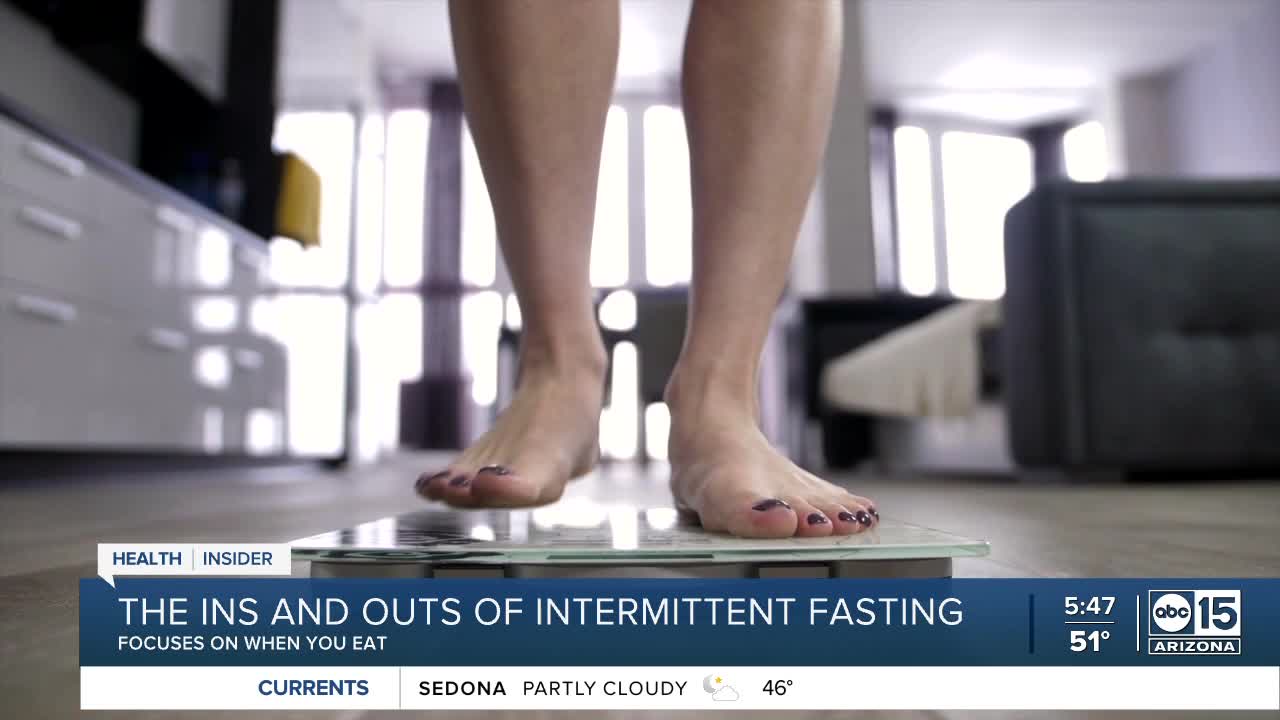You've heard the saying, 'breakfast is the most important meal of the day,' but if you're looking to lose weight, brunch may be your best bet.
A growing body of research shows timing is everything when it comes to diet and watching the clock is the hallmark of intermittent fasting.
"Similar to the restorative part of sleep. This is a restoration that can happen when we do a sleep or rest of our digestive tract," said ABC15 Health Insider Dr. Shad Marvasti who likens intermittent fasting to a metabolic housecleaning for the body. On a metabolic level, it basically looks for those pre-cancer cells (and) does all the necessary repairs."
Weight loss is the benefit that draws many to the practice but it can also help with metabolic syndrome, cholesterol levels, blood pressure, diabetes, and pre-diabetes.
Dr. Shad says the sweet spot is fasting for 16 hours, so if your last meal is at 8 p.m., you would have your next meal at noon. He adds you can start a 12-hour window and still see benefits.
"Naturally we do that anyway, that's why we call it breakfast — break the fast."
You can still have water during the fasting window and Dr. Shad says you'll actually increase the benefits if you end your evening with a no-calorie tea, like chamomile. Working out before that next meal will also boost the fasting benefits and your energy.
When it is time to eat again you don't have to change your diet but you should as he says, the quality of calories matters more than quantity.
"We know from the research that you can't outrun a bad diet."
In general, the most beneficial foods are leafy greens, nuts, seeds, beans, and fatty fish, like salmon.



